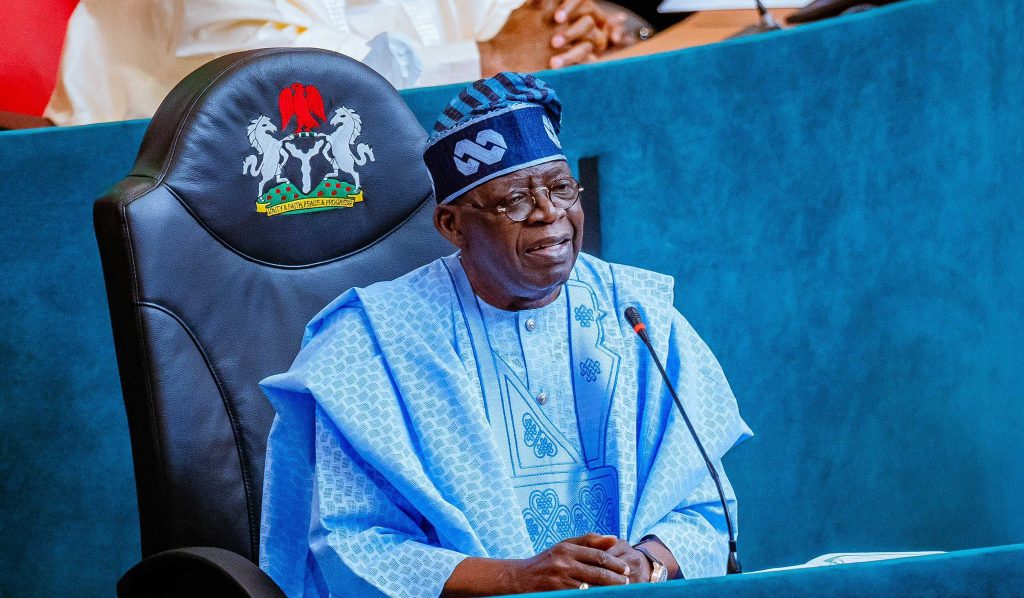NATIONAL NEWS

UNDER FIRE: TINUBU REVIEWS PARDON LIST AFTER PUBLIC BACKLASH
There are growing indications that some individuals on the presidential pardon list recently approved by the Council of State may be removed following widespread public criticism.
The development comes amid outrage over the inclusion of several high-profile and violent offenders among those reportedly granted clemency by President Bola Tinubu.
The presidential pardon, traditionally announced during national occasions, aims to decongest correctional facilities and promote reconciliation.
According to the Presidency, the approval followed recommendations from the Presidential Advisory Committee on the Prerogative of Mercy, chaired by the Attorney-General of the Federation, Prince Lateef Fagbemi (SAN). The list of beneficiaries was divided into six categories, including general pardons, posthumous pardons (such as the Ogoni Nine), recognition of the Ogoni Nine’s victims, presidential clemency, inmates granted sentence reductions, and inmates on death row whose sentences were commuted to life imprisonment.
However, the inclusion of certain controversial names has reignited public debate over the transparency and credibility of Nigeria’s clemency process.
On Thursday, the Attorney-General clarified that the Presidential Prerogative of Mercy was still undergoing review and had not been finalised.
Controversy continues to trail the inclusion of several names, with anti-graft and security agencies—including the Economic and Financial Crimes Commission (EFCC) and the National Drug Law Enforcement Agency (NDLEA)—reportedly intervening to halt the release of some listed individuals.
During the October 9, 2025 Council of State meeting, Fagbemi presented a list that included illegal miners, white-collar convicts, drug offenders, foreigners, Maj. Gen. Mamman Vatsa, Prof. Magaji Garba, Ken Saro-Wiwa and the Ogoni Eight, as well as capital offenders such as Maryam Sanda—among 175 individuals granted clemency. The full list was published by the Presidency on October 11, 2025.
While some names, such as Herbert Macaulay and Farouk Lawan, did not draw criticism, the inclusion of individuals convicted of violent crimes and national security offences provoked strong reactions.
One such name is Maryam Sanda, who was convicted in 2017 for killing her husband, Bilyaminu Bello. While some members of Bello’s family rejected her pardon, his father, Alhaji Bello Isa, and Maryam’s father, Alhaji Garba Sanda, jointly held a press conference expressing acceptance of the presidential decision.
Others on the list include Major S. Alabi Akubo, convicted of illegal firearm possession, and Kelvin Prosper Oniarah, a notorious kidnapper linked to criminal operations across Delta, Edo, Rivers, Abia, Benue, and Oyo States.
The inclusion of offenders convicted for killing security personnel, drug trafficking, and money laundering further intensified public criticism.
Amid the backlash, the Presidency is reportedly considering dropping controversial names from the clemency list following objections from security and anti-graft agencies.
Security Agencies Raise Objections
A senior presidential aide, speaking anonymously, disclosed that the EFCC, NDLEA, Independent Corrupt Practices and Other Related Offences Commission (ICPC), and other security agencies raised objections to the inclusion of certain individuals, insisting that some names were “smuggled in” without passing through the proper review process.
The agencies reportedly warned that releasing such convicts could undermine the government’s anti-corruption efforts and national security objectives.
According to the aide, “The list was too broad, and several names did not pass necessary security vetting. The EFCC, NDLEA, and others have insisted that it must be reviewed and trimmed. Some of those names did not originate from the official committee’s recommendations.”
Officials familiar with the matter confirmed that the final list is likely to exclude individuals whose release may pose security risks or erode public confidence in the justice system.
A top security source explained, “Some low-level officers manipulated the process and inserted names without proper clearance. The President was unaware of certain entries. The list has now been returned to the NDLEA and other agencies for thorough review.”
He added that some of the cases were still recent and that none of the affected individuals had been released.
An official of one of the anti-graft bodies also confirmed that multiple agencies expressed discomfort over the inclusion of ineligible convicts.
List Still Under Review
In a statement released in Abuja, Attorney-General Fagbemi reaffirmed that the clemency process remains under review and that no inmate has been released so far.
He stated, “The process is at its final administrative stage, which includes a standard review to ensure all names and recommendations comply with legal and procedural requirements before any release instrument is issued.”
Fagbemi explained that following Council of State approval, each beneficiary must still receive a formal instrument of release, giving room for a final verification to correct possible errors before submission to the Controller-General of Corrections.
“This verification process reflects the government’s commitment to transparency and due diligence,” he noted.
He also commended Nigerians for their vigilance and constructive feedback, describing it as evidence of their strong commitment to justice and good governance.
“There is no delay in the process; it is being handled according to the law to ensure only those truly deserving benefit from the President’s mercy. Once all checks are completed, the public will be informed. The rule of law ensures fairness, not haste,” Fagbemi concluded.
"This represents a significant development in our ongoing coverage of current events."— Editorial Board









